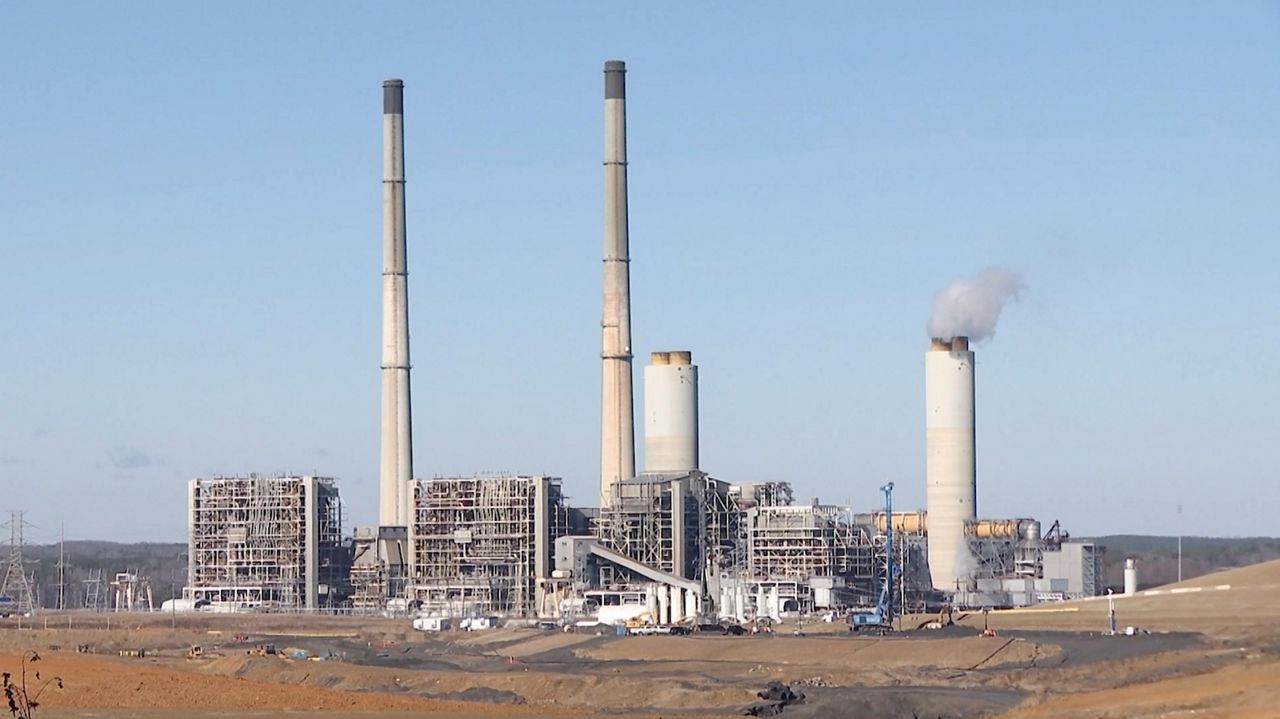PERSON COUNTY, N.C. — Environmental activists are reacting to the state’s first ever “carbon plan.” It was issued right before the new year, and the goal is to find ways for the electric sector, specifically Duke Energy, to reduce carbon emissions.
- North Carolina’s first ever “carbon plan” was issued right before the new year
- The goal is to reduce carbon emissions by 70% by 2030 and getting to net zero by 2050
- Steps in the plan include upgrading facilities to connect new solar power generation and increasing energy efficiency
- The plan also involves retiring Duke’s last coal fired power plants by 2035
- Some critics say the plan doesn’t necessarily prevent Duke from building new gas facilities or accelerate the deployment of renewable sources of energy
- The state’s Utilities Commission is required to review and adjust the carbon plan every two years
There are many steps in this plan, including upgrading facilities to connect new solar power generation as well as increasing energy efficiency. However, perhaps one of the most significant steps is retiring Duke’s last coal fired power plants in the next 12 years.
The Roxboro coal fired power plant has been supplying electricity for 57 years, resulting in millions of tons of coal ash, and chances are, North Carolinians have probably never seen it in person.
“This is the site of the Roxboro Steam Station, so it's Duke Energy's largest coal fired power plant in North Carolina,” David Rogers, the southeast deputy regional director of the Sierra Club’s Beyond Coal campaign, said. “I don't think people really realize where their power comes from, and I think if people came out and saw the impact on the land and what's going into the air, they'd be much more likely to actually want to take action and come to the table to find solutions.”
The Sierra Club is one organization that provided input on the state’s first ever carbon plan.
“If you would have asked me like five years ago that North Carolina would be considering reducing carbon emissions by 70% by 2030 and getting to net zero by 2050, I wouldn't have believed you,” Rogers said.
Related: Can N.C. be carbon neutral by 2050? 5 things to know about the new clean energy plan
To meet those goals, set by the state’s Utilities Commission, Duke Energy will have to close its remaining coal fired power plants by 2035.
“While this power plant has served its purpose, it's, you know, it's time to move in a new direction,” Rogers said.
Rogers believes this plan is a good start but also says it doesn’t accelerate the deployment of renewable sources of energy or prevent Duke from building new gas facilities.
“One of our biggest concerns is that if that we continue to expand our reliance on fossil gas, we're going to have a bunch of stranded assets that we just won't be able to utilize for the entire life span of them because we have to be net zero by 2050. And that's going to mean the customers are going to be paying for power plants that aren't going to be used in the future,” Rogers said.

Rogers also says one thing that needs to be addressed is how Person County may be impacted since it relies on tax money from the Roxboro plant.
“We need to figure out a way to help those communities, like here in Person County, transition in a way so that they can continue to thrive. But we've got to figure out a way to do it that doesn't cost people lives, which is what power plants do,” Rogers said.
In response to this first plan, Duke Energy released a statement saying, “We believe this is a constructive outcome that advances our clean energy transition, supporting a diverse, ‘all of the above’ approach that is essential for long-term resource planning. We’ve already made incredible progress, retiring two-thirds of our aging coal plants in North Carolina and South Carolina and reducing emissions by more than 40% since 2005 – we will continue this ongoing work of lowering carbon emissions to reduce risk for our customers while balancing affordability and reliability.”
The state’s Utilities Commission is required to review and adjust the carbon plan every two years.




